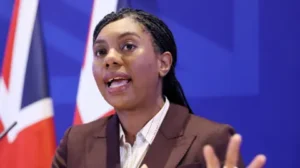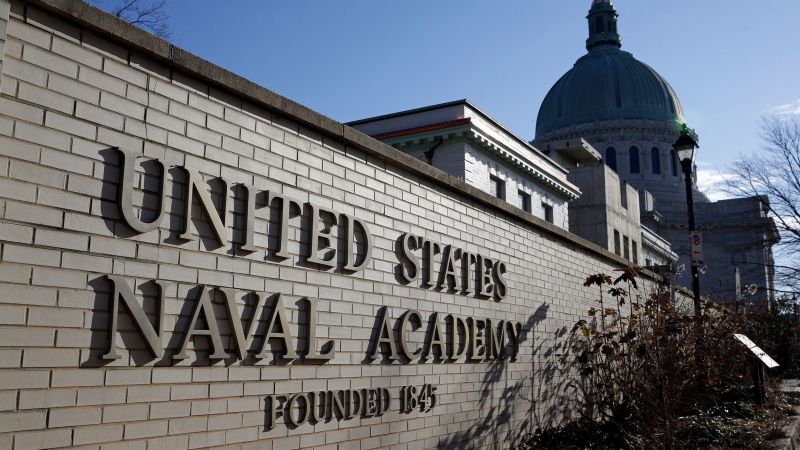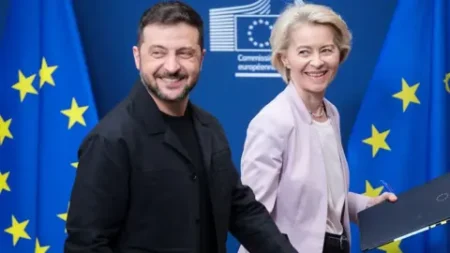The recent incident involving the US Naval Academy and author Ryan Holiday has stirred conversations about censorship and academic freedom in military education. Holiday was scheduled to give a lecture on the theme of wisdom to midshipmen on April 14, but the academy’s leadership withdrew the invitation after Holiday refused to omit slides that criticized a recent decision made by the institution regarding the removal of nearly 400 books.
Holiday, noted for his writings on philosophy and stoicism, expressed his views on the situation during an interview with CNN. He recounted how he had previously been invited by the Naval Academy multiple times since 2019, but this particular instance was marked by unusual preconditions. The day of his talk, Holiday received a call requesting that he refrain from mentioning the academy’s recent decision to strip 381 titles from the Nimitz Library, a move taken as a response to an executive order from then-President Donald Trump that sought to eliminate “diversity, equity, and inclusion” materials from educational institutions, including military academies.
Despite the academy’s request, Holiday maintained that he could not endorse censorship of any kind. “I couldn’t have spoken in front of these midshipmen about courage and about doing the right thing, and then remove a very reasonable objection to a very egregious concept,” he stated, emphasizing the moral implications of the academy’s actions. The withdrawn titles included significant works such as Maya Angelou’s poignant autobiography and books addressing critical issues of gender and race.
The Naval Academy’s rationale for removing these books directly aligned with the broader policies instigated by the Department of Defense, aiming to comply with new restrictions against “diversity” themes. This had raised alarms among those who believe that eliminating access to such literature not only limits the educational environment of future military leaders but further inclines them toward a politicized atmosphere that stifles independent thought.
In his prepared lecture, Holiday integrated themes and quotations focusing on the importance of critical thinking and openness to a variety of experiences, drawing inspiration from historical figures and broad literary themes. He aimed to convey a message that leaders in the military must be independent thinkers. “Leaders must be independent thinkers, otherwise they are not leaders,” one of his slides proclaimed.
Additionally, the presentation referenced former notable military and political figures such as James Stockdale and Dwight D. Eisenhower, showcasing how broad intellectual exploration has historically stood as a pillar for strong leadership. Holiday argued that to be a competent leader, especially within the military, young leaders should be exposed to complex and sometimes uncomfortable ideas rather than shielded from them.
The ban on these books came amidst allegations of broader censorship practices at the Naval Academy, as rumors circulated about other instances where educational materials were to be removed due to vague interpretations of DEI policies. For example, there was an incident involving displays of photographs of prominent Jewish women which were removed from the academy under similar pretenses. Such actions have raised doubts around the clarity and application of these policies, with critics stating they seem to lead to a culture of fear over any association with diverse viewpoints.
The impact of these restrictions has been significant, extending beyond the Naval Academy. Students and parents across Defense Department schools have reported direct repercussions from similar policies, leading to the ACLU filing a lawsuit against the Department of Defense over these censorship measures. Articles addressing cultural milestones like the Holocaust or issues of vital social relevance have also been caught in the crossfire, as the Pentagon aims to ensure compliance with the controversial directives given by Secretary Hegseth.
The debate surrounding academic freedom and censorship remains a contentious topic, as stakeholders both within and outside military education grapple with the implications of these policies. As the naval education institutions navigate this political landscape, many are left questioning the prospects for fostering an environment that champions learning through open discourse and critical examination of ideas, crucial traits for any prospective leader.











